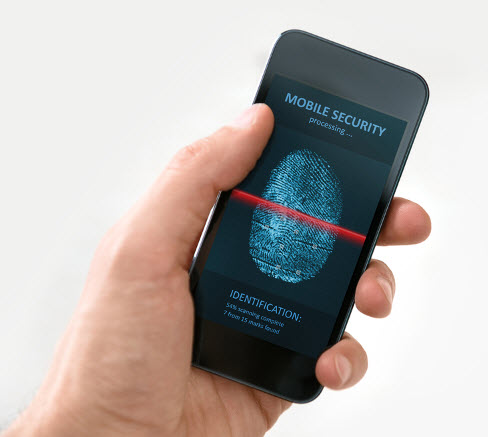Hack against LoopPay conducted by Chinese group
LoopPay has been targeted by hackers, which has caused concern among consumers using Samsung Pay. LoopPay was acquired by Samsung earlier this year, and this company’s technology is central to Samsung Pay. The hack was noted as being a sophisticated attack by a supposedly government-affiliated group in China. The actual attack occurred back in march of this year, but several events associated with the attack have been identified by LoopPay and Samsung since then.
Digital attacks continue to grow in frequency in the mobile commerce space
Digital attacks are becoming more common in the mobile commerce space, where a great deal of money is now flowing. Because many organizations involved in this space have very limited experience when it comes to mobile payments and the technology needed to secure them, they have become prime targets for malicious groups that seek to exploit the financial information of consumers. Over the years, large organizations have reported cyber attacks on their mobile payments systems, which has lead to the information of millions of consumers being compromised.
Samsung notes that the attack will not affect Samsung Pay users
 While the attack is considered significant, Samsung suggests that it is nothing more than an isolated incident. As such, the information associated with Samsung Pay itself, such as the financial details of consumers, has not been compromised. The company claims that those using Samsung Pay will not have to worry about their information being exploited, but consumers may want to take steps to ensure that their information is secure nonetheless.
While the attack is considered significant, Samsung suggests that it is nothing more than an isolated incident. As such, the information associated with Samsung Pay itself, such as the financial details of consumers, has not been compromised. The company claims that those using Samsung Pay will not have to worry about their information being exploited, but consumers may want to take steps to ensure that their information is secure nonetheless.
Security continues to be a major issue for the mobile commerce space
Security, or lack thereof, has been a major problem that has plagued the mobile commerce space for years. Several companies have become involved in this sector, but they have not been able to keep up with the digital risks that exist therein. Without adequate security, consumers have begun to lose faith in mobile commerce as a whole, which has driven them to remain firmly within the realm of traditional commerce and e-commerce, where they are more comfortable.
Biometrics have succeeded in making mobile commerce more secure
Biometric technology is expected to have a major impact on the mobile payments space. A new report from Goode Intelligence has noted that this technology has helped making mobile commerce much more secure than it had been in the past. This technology involves the use of biological information, such as a fingerprint, to protect a mobile device. Many of the latest smartphones that have been released this year incorporate biometric technology in some way, especially those that have mobile payments capabilities.
Report predicts that biometrics will secure $5.6 trillion in mobile payments by 2020
According to the report from Goode Intelligence, biomteircs may be responsible for securing more than $5.6 trillion in mobile payments by 2020. This technology will be used to authorize some 226 billion transactions, with each transaction coming in at $25 on average. Consumers have shown a great deal of interest in mobile commerce, as it represents a more convenient way for them to get their shopping done. One of the problems that consumers have had with mobile payments, however, is a lack of security.
Security solutions ensure that consumers will be protected as they make mobile transactions
 Mobile commerce is a very attractive market, especially among malicious groups that would be interested in exploiting the financial information of consumers. Security concerns had kept many consumers away from the mobile commerce space, which has lead several organizations involved therein to look for adequate solutions to this problem. Biometric technology has proven to be the solution that these organizations have been looking for, as the technology has proven to keep consumer information safe in an effective manner.
Mobile commerce is a very attractive market, especially among malicious groups that would be interested in exploiting the financial information of consumers. Security concerns had kept many consumers away from the mobile commerce space, which has lead several organizations involved therein to look for adequate solutions to this problem. Biometric technology has proven to be the solution that these organizations have been looking for, as the technology has proven to keep consumer information safe in an effective manner.
Tokenization and biometric technology are gaining ground among payments firms
Biometrics are not the only way to keep consumer information sector, of course. Tokenization is also becoming quite popular in the mobile payments space. This involves replacing consumer financial information with digital tokens, which are unique for every transaction. Both Visa and MasterCard are using this practice in order to ensure that those participating in mobile payments are adequately protected from malicious groups.
 While the attack is considered significant, Samsung suggests that it is nothing more than an isolated incident. As such, the information associated with Samsung Pay itself, such as the financial details of consumers, has not been compromised. The company claims that those using Samsung Pay will not have to worry about their information being exploited, but consumers may want to take steps to ensure that their information is secure nonetheless.
While the attack is considered significant, Samsung suggests that it is nothing more than an isolated incident. As such, the information associated with Samsung Pay itself, such as the financial details of consumers, has not been compromised. The company claims that those using Samsung Pay will not have to worry about their information being exploited, but consumers may want to take steps to ensure that their information is secure nonetheless.
 Mobile commerce is a very attractive market, especially among malicious groups that would be interested in exploiting the financial information of consumers. Security concerns had kept many consumers away from the mobile commerce space, which has lead several organizations involved therein to look for adequate solutions to this problem. Biometric technology has proven to be the solution that these organizations have been looking for, as the technology has proven to keep consumer information safe in an effective manner.
Mobile commerce is a very attractive market, especially among malicious groups that would be interested in exploiting the financial information of consumers. Security concerns had kept many consumers away from the mobile commerce space, which has lead several organizations involved therein to look for adequate solutions to this problem. Biometric technology has proven to be the solution that these organizations have been looking for, as the technology has proven to keep consumer information safe in an effective manner.